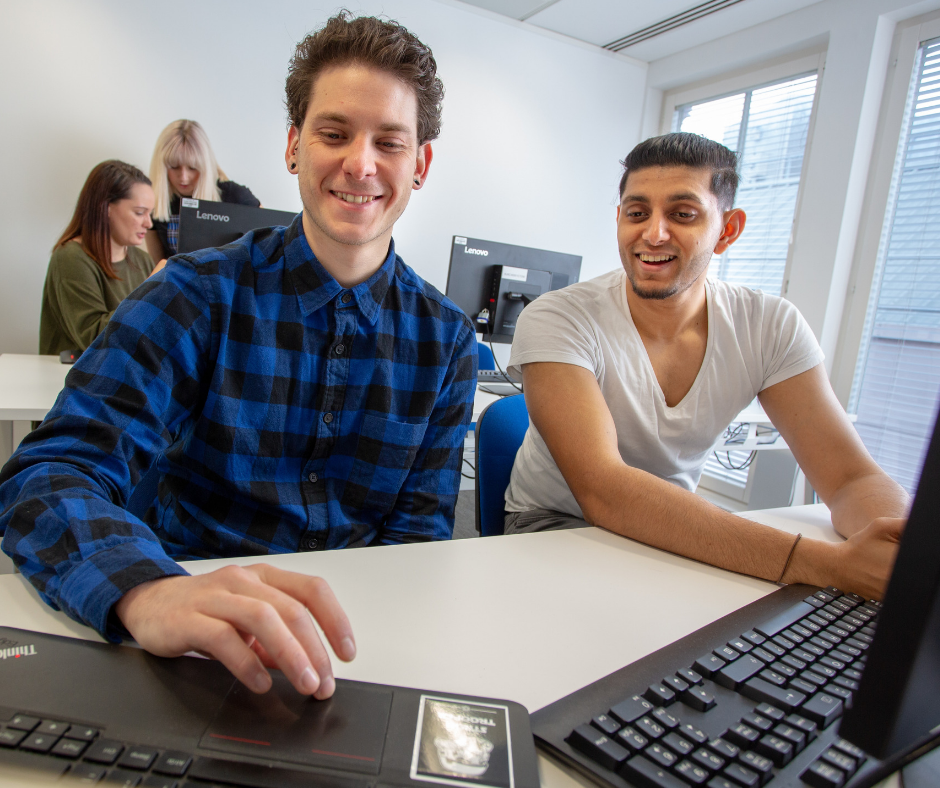With an IT skills shortage in the workplace, now could be the perfect time to study a computing degree. We take a look at the subject of computing, the careers it could lead to, and if it could be the right choice for you.
Everything you need to know about computing degrees
Computing is part of just about everything we do, from the cars we drive and the phones we use to the way businesses are managed. And as reported by the Tech Partnership, the Sector Skills Council for the IT and telecommunications industry predicts that from jobs in IT and telecoms have grown almost twice as quickly as the UK average in the last two years. So, are you ready to stay connected and accelerate your future by studying computing at university?
Why study computing?
Why study computing over any other subject area?
There can be significant financial rewards for pursuing an IT related career - graduate starting salaries have been reported at anywhere between £21,000 and £30,000 - and the demand for highly skilled computing professionals is bigger than ever before. However, a large number of positions are being left unfilled due to an IT skills shortage. So if you want a secure future where employability is at an all-time high, you should consider applying to university to study computer science, IT or data-related courses.
Watch our quick video, 5 reasons to study computing:
Find your perfect course at Arden
Is studying computing at university the right move for me?
A computing degree is designed to provide you with a range of skills and resources specifically tailored to meet the requirements of the computing industry. Graduates from these courses have a great understanding of a broad range of computing ideas and are well placed to drive forward future advancements in computing. With the ‘know how’ of coding, programming and databases, you’ll soon be speaking the computing language!
Is computer science a good degree?
From WiFi to smartphones, to social networking and instant messaging: over the last 25 years, technology has dramatically changed the way we live and how we communicate.
Thanks to your impressive IT knowledge and professional analytical skills (not to mention the fact that you’ll be a whizz at problem solving) when it comes to potential careers, the world really is your oyster. Possible positions include:
- Computer networking
- Systems analyst
- Web designer
- Software development
- Games development
- Sound technician
- Multimedia broadcaster
- Credit analyst
- Financial risk analyst
- Copywriter
- Web content manager
How's that for choice?
Fast Facts
What type of qualification will I get?
Students who study IT and Computing at university will normally obtain a BSc (Hons) qualification. Course names may vary between institutions but the most common are Computing, Computer Science or Information Systems. Master's programmes are also available.
Do I have to go to university to study?
No, there are many ways to study for an IT and Computing degree. Online, part-time, and blended learning (part online, part face-to-face) options are all available.
Find out more about the types of learning available at Arden.
How long will it take to study computing at university?
Degree courses are normally three years. Most students studying part time are expected to complete the course in approximately four and a half years.
Taking your career up a notch with a postgraduate qualification? A Master’s degree can be completed in 1-5 years, depending on the mode of study.
What are the entry requirements?
Requirements will vary depending on which university you apply for. In most cases, an A-Level maths qualification (or equivalent) will be required. Some institutions also offer a foundation year which acts as a stepping stone towards a degree.
When applying for a Master’s degree, students are normally educated to a degree level.
Often, work experience can be taken into account alongside other qualifications.
What jobs can you get with a computer science degree?
Prospects aren’t restricted to ‘IT companies’ as most businesses value IT and computing skills, making this a very flexible qualification. From Data Analyst and Application Programmer to Project Manager and Business Development Office, the opportunities are endless.
What type of salary could I expect as a graduate?
Average graduate figures range from £21,000 to £30,000 (see above).
Do I have to specialise in a specific area?
No, you don’t. Whether you want to study Computer Science or Computing, BSc degree courses will cover a range of theory and applied work. Degrees in niche areas are also available such as mobile computing, information management, security IT, however, specialist courses are more commonly at postgraduate level.





